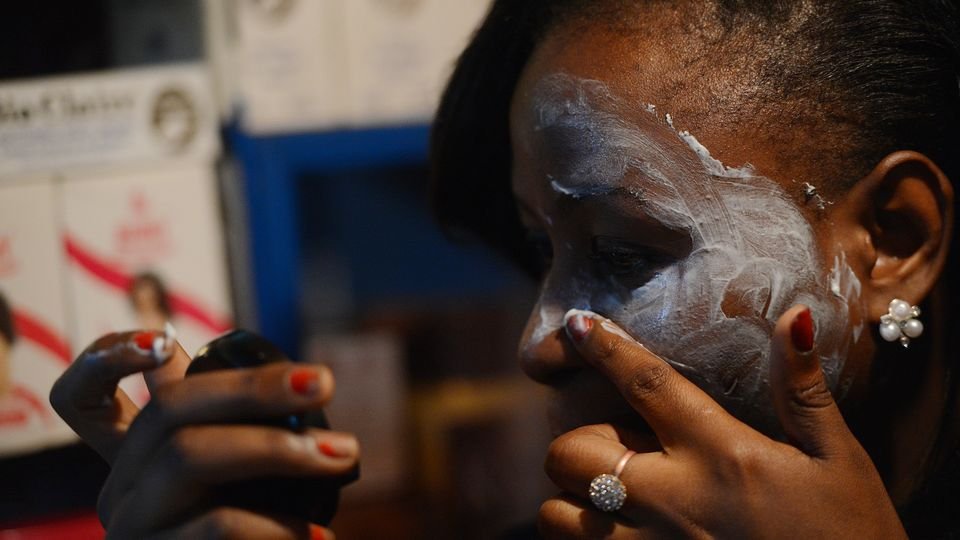
In the world of skincare, toning and bleaching are two words that are often thrown around — sometimes interchangeably, sometimes sneakily. For many, it’s difficult to tell the difference. Some products even blur the lines with clever packaging and vague promises like “flawless glow” or “intense fairness.”But let’s be clear: toning and bleaching are not the same thing. Not even close.Here’s everything you need to know about the difference — and why it matters for your skin, confidence, and long-term health.What Exactly Is Skin Toning?Recommended For YouNews2025-06-24T09:38:58+00:00NPP tensions deepen over ex-MMDCEs’ support for Dr BawumiaSports2025-06-24T09:30:41+00:00Hearts of Oak re-appoint ‘sacked’ Ouattara as special advisor to the boardLifestyle2025-06-24T12:09:03+00:00How to choose a university course that’s right for youToning is all about restoring balance and clarity to your skin. It targets uneven skin tone, dark spots, or hyperpigmentation caused by acne, sun damage, or scarring. But it does not lighten your natural complexion. Think of it as enhancing your glow — not changing your identity.Toning products often help:They’re typically packed with gentle but effective ingredients like:Toning = balance, brightness, and even skin tone. Not bleaching.READ ALSO: Common colours that make you look cheapSo, What Is Skin Bleaching Then?Skin bleaching refers to the chemical lightening of your natural skin tone — not just specific spots, but the overall colour of your face or body. The goal is usually to reduce melanin, the pigment that gives skin its rich, natural tone.Common bleaching agents include:Over time, bleaching can lead to:Simply put, bleaching changes who you are — toning supports who you are.ALSO READ: Stop these skincare habits that are making you look older than you areLet’s Talk Colourism and Social PressureIn many African, Asian, and Caribbean communities, lighter skin is still wrongly associated with beauty, wealth, and opportunity. This harmful standard, rooted in colonial history and media influence, fuels the market for bleaching products disguised as “skin brighteners” or “glow creams”.Using too much skincare product can overwhelm your skin [iStock]It’s important to question: Who benefits from me thinking my natural skin isn’t good enough?Glowing skin has nothing to do with being lighter. It’s about being healthy, clear, and cared for — whatever your shade. How to Spot the Difference on a Product LabelHow to Spot the Difference on a Product LabelSome products claim to “tone” or “brighten” but contain harsh bleaching agents in disguise. Here’s how to protect yourself:Red flags that a product is actually bleaching:Using bleaching creams can permanently damageyour skin [DailyTrust]If you feel unsure — patch test and do your research. Don’t rely solely on what’s written on the front of the bottle.READ ALSO: Easy home remedies to soothe your skin after bleachingMelanin-Safe Toning Ingredients to Look ForIf you’re dealing with dark spots, uneven skin tone or post-acne marks, here are safe, effective ingredients to look for:Vitamin C – brightens and supports collagen productionNiacinamide (Vitamin B3) – fades pigmentation gently and supports barrier repairKojic acid – derived from mushrooms; gently reduces melanin productionAlpha arbutin – derived from bearberry, slows pigment production without bleachingAzelaic acid – anti-inflammatory and great for acne-prone skinREAD ALSO: Reasons people become more attractive after heartbreakProduct examples (always patch test first):The Ordinary Niacinamide 10% + ZincGood Molecules Discoloration SerumNaturium Alpha Arbutin SerumBeauty of Joseon Glow SerumSkin Functional Vitamin C + FerulicALSO READ: Benefits of ice therapy for a fresh, glowing faceIs Your Product a Toner or a Bleacher?Let’s keep it simple — answer yes or no:Does it promise to “lighten” or “whiten” your skin overall?Is hydroquinone or mercury in the ingredients (or is the list missing)?Does it sting or burn when you use it?Is it being sold without a brand name or proper label?Is it marketed using only lighter-skinned models?If you said yes to more than one — that product may be doing more harm than good. Choose skincare that supports your melanin, not one that tries to erase it.READ ALSO: Ghanaian foods that are good for your heartProtect Your Glow, Not Your InsecuritiesThe glow you’re chasing isn’t about being lighter — it’s about feeling confident in your skin. Bleaching is built on shame. Toning is built on care. One forces your skin to change; the other helps it heal.Let your skincare be an act of love, not fear.